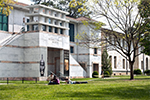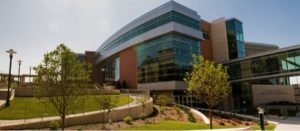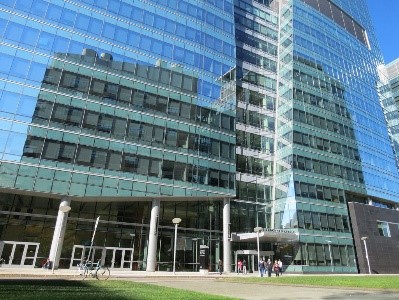 University of Arizona – Aegis Consortium
University of Arizona – Aegis Consortium
The Aegis Consortium
University of Arizona
Health Sciences Innovation Building
1670 East Drachman Street
Tucson, Arizona 85721

Associate Director: Jim Buizer
Member Researchers: Deepta Bhattacharya, Sam Campos, John J. Purdy, Felicia Goodrum, Koenraad Van Doorslaer, Kacey Ernst, Kristen Pogreba-Brown, Ian Pepper, Charles Gerba

Center Director: Dr. Janko Nikolich-Žugich
Pandemics are a collective threat that require collective action. The Aegis Consortium, a recognized Center of the University of Arizona, unites a diverse coalition of experts from all corners of the human experience to develop pandemic solutions. We operate across disciplines, industries and borders, pooling resources to develop flexible solutions that can be implemented in communities worldwide.
Our true north, developing strategies for a pandemic-free future, are embodied in 3 distinct pillars, as follows:
Pillar 1: Pandemics Control, Prediction & Preparedness
- Studying the multitude of human immune responses to SARS-CoV-2
- Providing new therapies and methods to protect the vulnerable
- Building a robust virus evolution and virus escape prediction system
- Addressing possible SARS-CoV-2 escape and reinfection potential, as well as detect new pandemic threats
- Developing early warning systems and rapid response systems to manage/mitigate early disease/virus outbreaks
Pillar 2: Post-Acute effects of Pandemics on Individuals and Societies
- Addressing multi-organ effects of the virus and of aberrant immune responses at the individual level of vulnerable, particularly aging, hosts
- Addressing the intermediate and delayed impact of virus-related disruption of social, educational and economic activities
Pillar 3: Resilience of Built & Natural Environments in Pandemic Control
- Investigating how the virus and its human hosts change depending on different indoor and outdoor environments
- Investigating how this plays into vulnerability and resilience and how we can alter the built environment to accommodate resilience against pandemics
 Center for Virology at Icahn School of Medicine at Mount Sinai
Center for Virology at Icahn School of Medicine at Mount Sinai
One Gustave L. Levy Place, Box 1124
New York, NY 10029

Center Director: Dr. Peter Palese
Member Researchers: Adolfo Garcia-Sastre, Florian Krammer, Ana Fernandez-Sesma, Benhur Lee, Thomas Moran, Benjamin tenOever
The Department of Microbiology is focused on studying such viruses as influenza, dengue, Ebola, Marburg, Crimean-Congo hemorrhagic fever, Chikungunya, West Nile fever, hepatitis C, and emerging paramyxoviruses such as Nipah and Hendra viruses. Studies are directed at understanding how the innate immune system of the infected host is counteracted by components of these viruses and how the interferon signaling system works on a molecular level. Department researchers are involved in developing new vaccines against these viruses, identifying small molecular weight compounds for use as antivirals, and generating broadly neutralizing antibodies against pathogens in the WHO Blueprint list of priority diseases such as Nipah and henipaviral disease. Unique resources that facilitate development of such countermeasures include CTAD (Center for Therapeutic Antibody Development) and VECToR (Virus Engineering Center for Therapeutics and Research), both led by departmental faculty. Additionally, some faculty members have BSL4-trained postdocs and long-standing funded collaborations with national BSL-4 facilities (UTMB-Galveston) where, for example, vaccines and therapeutics against henipaviruses can be tested. Established in 1968, the Icahn School of Medicine at Mount Sinai (formerly, Mount Sinai School of Medicine) is one of the few medical schools embedded in a hospital in the United States. It has more than 3,400 faculty in 32 departments and 15 institutes, and ranks among the top 20 medical schools both in National Institute of Health funding and by U.S. News & World Report.
 Center for Innate Immunity Research, CIIR at Lerner Research Institute at Cleveland Clinic
Center for Innate Immunity Research, CIIR at Lerner Research Institute at Cleveland Clinic
9500 Euclid Ave NB21
Cleveland, OH 44195

Center Director: Dr. Michaela Gack
Member Researchers: Robert Silverman, Jae Jung, George Stark, Ganes Sen, Bryan Williams, Cornelia Bergmann, Christine O’Connor, Xianfang Wu
Cleveland Clinic is a nonprofit multi-specialty academic medical center that integrates clinical and hospital care with research and education. Located in Cleveland, Ohio, it was founded in 1921 by four renowned physicians with a vision of providing outstanding patient care based upon the principles of cooperation, compassion and innovation. Cleveland Clinic has pioneered many medical breakthroughs, including coronary artery bypass surgery and the first face transplant in the United States. U.S. News & World Report consistently names Cleveland Clinic as one of the nation’s best hospitals in its annual “America’s Best Hospitals” survey. In 2018, there were 7.9 million total outpatient visits, 238,000 hospital admissions and observations, and 220,000 surgical cases throughout Cleveland Clinic’s health system. Patients came for treatment from every state and 185 countries. Its research facilities encompass over 700,000 sq ft of laboratory space on campus with nearly 2,000 researchers and support personnel and an annual research budget exceeding $300 million. Lerner Research Institute (LRI) is home to basic, translational, and clinical research at Cleveland Clinic. With its level of funding from federal and, non-federal sources, the LRI ranks in the top 10 Institutes in the country in terms of research success. Its 30-year history of groundbreaking advances in antiviral innate immunity research makes Cleveland Clinic an internationally recognized institution in this area of research. These advances include many fundamental discoveries on interferon signal transduction and antiviral pathways. Among the members of the GVN center will be leading investigators in viral-host interactions, encompassing antiviral drug development, immune modulatory therapies, and emerging viral pathogens. The center also includes the recently established Florida Research and Innovation Center (FRIC) in Port Saint Lucie, Florida, dedicated to the advancement of innovative translational research focused on immuno-oncology and infectious diseases.
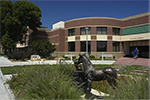 College of Veterinary Medicine & Biological Sciences
College of Veterinary Medicine & Biological Sciences
1619 Campus Delivery
Colorado State University
Fort Collins, CO 80523-1619
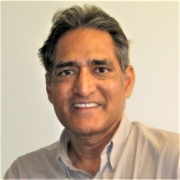
Center Director: Dr. Ramesh Akkina
Member Researchers: Dr. Ken Olson
The Microbiology, Immunology and Pathology (MIP) Department is comprised of over 400 individuals who share a common passion for solving some of the most important human and animal health problems today. Research programs include those related to mycobacteria, retroviruses, prions, and arthropod-borne infectious diseases, as well as the diagnostic investigation of naturally-occurring animal diseases. A leader in education, MIP provides the only microbiology undergraduate degree program in Colorado, a graduate program that provides training in a number of cutting-edge disciplines, and several specialized veterinary residency training programs.
Laboratory of Biochemical Pharmacology
1760 Haygood Drive, Room E420
Atlanta, GA 30322, USA
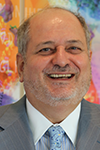
Center Director: Dr. Raymond Schinazi
Member Researchers: Dr.’s Silvestri, Del-Rio, and Hunter
Emory University is at the epicenter of the AIDS epidemic in the Southeastern US located in Atlanta, GA. The University sits in a geographic area that is disproportionately affected by HIV/AIDS. Emory University has an established NIH funded HIV Program and Center for AIDS Research (CFAR). Emory has established itself as a center for emerging infectious disease research (e.g., Hepatitis B and C, Dengue, Chikungunya, Ebola and most recently Zika viruses). In addition, Emory University Hospital is an established leader as a regional/global health care center including among the first center equipped to treat individuals infected with Ebola virus in 2015. In addition, Emory University Hospital has affiliation with Grady Hospital (urban Community Hospital) and close proximity and collaborations with adjacent Atlanta Centers for Disease Control and the Atlanta Veterans Administration Medical Center. In addition, Emory University has established collaborations with other Atlanta-based universities including Georgia Institute of Technology (Georgia Tech Partnership) and Morehouse School of Medicine (Prevention Research Center, PRC). These initiatives underscore a vigorous infectious diseases research program as well as strong programs in outreach, clinical service and education.
10903 New Hampshire Avenue
Building 52, Room 1128
Silver Spring, MD 20993
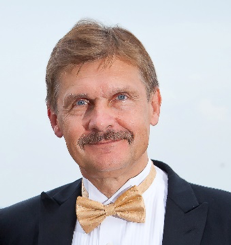
Center Director: Dr. Konstantin Chumakov
Member Researchers: Vadim Agol (Moscow University), Antonio Toniolo (University of Insubria), Scott Dessain and Ramdev Puligedda (Lankenau Institute of Medical Research), George Belov (UMD), John Clements and Elizabeth Norton (Tulane U), Cara Burns and Jennifer Anstadt (CDC), Andrew Macadam and Javier Martin (NIBSC), Raul Andino (UCSF)
FDA Center for Biologics Evaluation and Research (CBER) is the world’s oldest institution responsible for regulation of biologically-derived medical products. As its name suggests, another mission of CBER is to conduct regulatory research to better understand basic and translational aspects of regulated products, and to inform development, evaluation, and manufacture of various biologicals. Office of Vaccines Research and Review (OVRR) is one of the three product offices, along with the Office of Blood Research and Review, and the Office of Tissue and Advanced Therapies that also regulates gene and cellular therapies. The area of regulatory and research purview of OVRR includes vaccines against viral, bacterial, and parasitic diseases, allergenic products for both diagnostic and therapeutic use, as well as live bio-therapeutic products, such as probiotics, fecal microbiota transplantation, and phage therapy. The Office research portfolio includes 35 independent research programs covering a wide range of viral and bacterial pathogens.
 Gladstone Institute of Virology & Immunology
Gladstone Institute of Virology & Immunology
1650 Owens Street
San Francisco, CA 94158
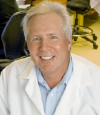
Center Director: Dr. Warner Greene
Member Researchers: Melanie Ott, Dr. Nadia Roan and Dr. Leor Weinberger
Virology and immunology research at Gladstone is focused primarily on three primary and urgent challenges in HIV/AIDS. We desperately need a vaccine for those at risk of coming in contact with the virus, as well as a cure for the millions of people who are already infected. And finally, we need new approaches for restoring a normal lifespan to those who are HIV-positive—but dying much too early from diseases of aging. In addition to HIV, we’re working on a variety of other areas of investigation: Gladstone scientists are looking for new biological targets for drugs that will attack the hepatitis C virus—which has infected 170 million people worldwide. Hepatitis C is a common co-infection with HIV/AIDS. We are also investigating the molecular structure of viruses associated with cancer—and how to remove them from the body as a way to reduce the risk of cancer. And we are investigating why newborns and infants mount less effective immune responses to viruses than adults do.
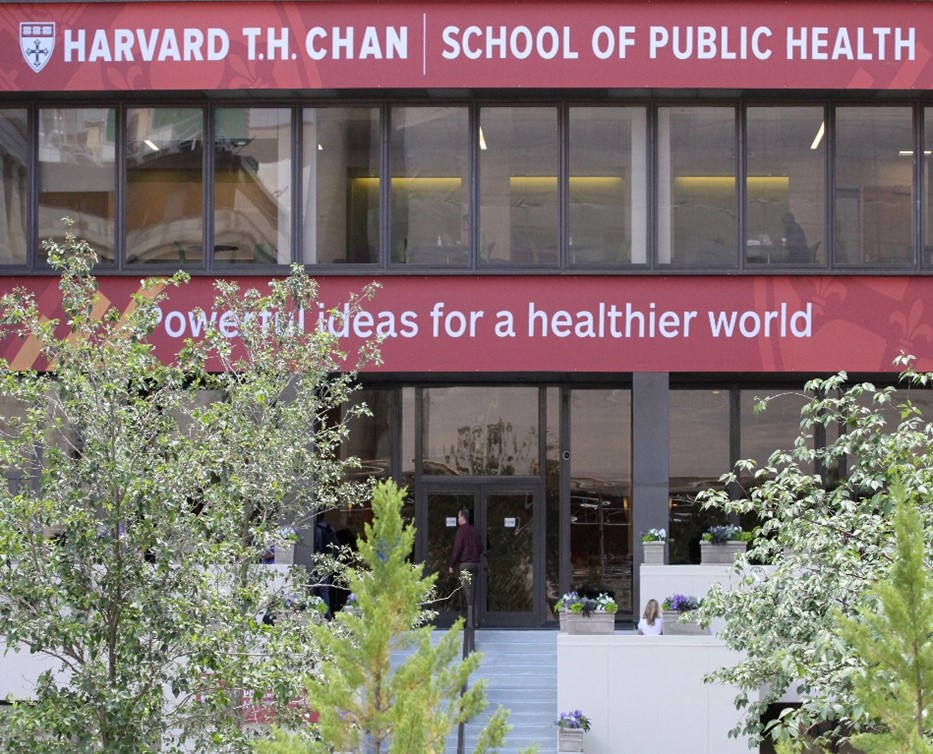 Harvard T.H. Chan School of Public Health
Harvard T.H. Chan School of Public Health
665 Huntington Ave, Bldg 1
Room 706
Boston, MA 02115

Center Director: Dr. Pardis Sabeti
Member Researchers: Brownwyn MacInnis, Daniel Park, Cameron Myhrvold, Christian Happi, Onekepe Florin, Jeremy Lubin
The Sabeti Lab at the Broad Institute develops methods and tools that can be easily leveraged by investigators to open new fields of inquiry in genome biology and medicine. We bring expertise from widely varying fields — such as human genomics, viral sequencing, information theory, rural disease surveillance and education efforts in West Africa — to create comprehensive approaches for detecting, containing, and treating deadly viral diseases. This is a dynamic lab with projects funded by various U.S. government agencies (NIH, DARPA) and various philanthropic donors.
About the Broad
Our research teams are working on redefining the boundaries of science and medicine with an interdisciplinary model designed to meet today’s most critical biomedical challenges. Here you will find a supportive and collaborative intellectual environment and a firm commitment to continuously invest in cutting edge technology. At the Broad we are developing new tools that enable scientists to unlock the mysteries of genomics.
 Institute of Human Virology, University of Maryland
Institute of Human Virology, University of Maryland
725 W. Lombard Street
Baltimore, MD 21201

Center Director: Dr. Robert C. Gallo
Member Researchers: Alash’le Abimiku, Clement Adebamowo, Anthony Amoroso, Manhattan Charurat, Neil T. Constantine, Tony DeVico, Matthew Frieman, Shyamasundaran Kottilil, George Lewis, Wuyuan Lu, Mikulas Popovic, Marvin S. Reitz, Mohammad Sajadi, Mangalasseril Sarngadharan, Alan L. Schmaljohn, Yutaka Tagaya, Yang Liu
Administration: Nora Samaranayake
The Institute of Human Virology (IHV) is the first center in the United States – perhaps the world – to combine the disciplines of basic science, epidemiology and clinical research in a concerted effort to speed the discovery of diagnostics and therapeutics for a wide variety of chronic and deadly viral and immune disorders – most notably HIV, the cause of AIDS. Formed in 1996 as a partnership between the State of Maryland, the City of Baltimore, the University System of Maryland and the University of Maryland Medical System, IHV is an institute of the University of Maryland School of Medicine and is home to some of the most globally-recognized and world-renowned experts in the field of human virology.
9704 Medical Center Drive
Rockville, MD 20850
and
4120 Capricorn Lane
La Jolla, CA 92037


Center Director: Dr. John I. Glass and Dr. Richard H. Scheuernmann
Member Researchers: Suman Das, Dan Gibson, Richard H. Scheuernmann, Reed S. Shabman, Sanjay Vashee
The J. Craig Venter Institute (JCVI), which has campuses in both Rockville, MD and La Jolla, CA, has become a major center in virology research. The thread that runs through all JCVI research is genomics, i.e. analysis of the genetic material of populations of organisms, organisms, cells, and viruses. The virology program at JCVI conducts research focused primarily on genomics, evolution, pathogenesis, and vaccine development. The JCVI virology community is composed of representatives from every group in the institute: infectious diseases, human genomics, bioinformatics, synthetic biology, and environmental genomics. JCVI virology may be best known for sequencing thousands of complete influenza virus genomes, and the viral genomics program also has expertise in sequencing, assembly, and annotation of many other virus families. Thus, the ability of JCVI to rapidly isolate, sequence, analyze and synthesize virus genomes through a fully integrated workflow infrastructure makes JCVI unique as a possible rapid response center and therefore a valuable partner in the GVN.
 Johns Hopkins Bloomberg School of Public Health
Johns Hopkins Bloomberg School of Public Health
615 N. Wolfe Street
Baltimore, MD 21205
 Center Director: Dr. Diane Griffin
Center Director: Dr. Diane Griffin
Member Researchers: Janice E Clements, Andrea Cox, George Dimopoulos, Anna Durbin, J. Marie Harwick, S. Diane Hayward, Gary Ketner, Sabra Klein, John Nicholas, Douglas Noris, Andrew Pekosz, Deborah Persaud, Stuart C. Ray, Robert Siliciano
The Johns Hopkins Bloomberg School of Public Health is part of Johns Hopkins University in Baltimore, Maryland and is composed of ten academic departments. As the first independent, degree-granting institution for research and training in public health, and the largest public health training facility in the United States, the Bloomberg School is a leading international authority on the improvement of health and prevention of disease and disability. The school’s mission is to protect populations from illness and injury by pioneering new research, deploying its knowledge and expertise in the field, and educating scientists and practitioners in the global defense of human life. The school is ranked first in public health in the U.S. News and World Report rankings and has held that ranking since 1994.
The La Jolla Virus Network (LJVN) unites the La Jolla Institute for Immunology (LJI), Scripps Research, University of California at San Diego (UCSD) and other institutions on the Torrey Pines Mesa in the study of multiple viruses including Ebola, Lassa, Zika, Dengue, HIV-1 and CMV as pathogens and model systems. LJVN scientists work together to perform research on the immunology, human immune response and strategies for medical defense against these viruses. LJVN is headquartered at LJI, a nonprofit institute located within the UCSD Science Research Park, that for more than 30 years has been dedicated to furthering our understanding of how the power of the human immune system can be harnessed to promote health and life without disease. To assist the LJVN, LJI recently added a state-of-the art electron microscopy suite to facilitate elucidation of structural aspects of virus and host proteins that are critical for the design of effective antiviral vaccines and therapeutics.
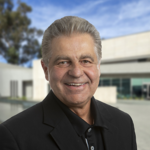
Center Director: Dr. Richard Wyatt
Member Researchers: Sujan Shresta, Shane Crotty, Chris Benedict, Kathryn Hastie, Brian Sullivan, Kristian Anderson, Philippe Gallay, Dennis Burton, Matt Daugherty, Elina Zuniga, Clodagh O'Shea, Frank Chisari, Hyeyrun Choe, Juan Carlos de la Torre, John Elder, Michael Farzan, Lars Hangartner, Jack Johnson, Mansun Law, Don Mosier, David Nemazee, Glenn Nemerow, James Paulson, Vijay Reddy, Hugh Rosen, Andrew Saphire, William Scief, John R. Teijaro, Timothy Tellinghuisen, Bruce Torbett, Susana Valente, Andre Ward, J. Lindsay Whitton, Ian Wilson, Richard Wyatt, Michael Zwick
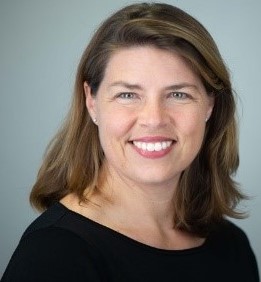
Center Director: Dr. Erica Ollmann Saphire, PhD
 Tulane University School of Medicine
Tulane University School of Medicine
1430 Tulane Avenue
New Orleans, LA 70118

Center Director: Robert F Garry
Member Researchers: Donald Grant, Pardis C. Sabeti
The Eastern Province of Sierra Leone has the world’s highest incidence of Lassa fever, a viral hemorrhagic fever that disproportionately affects pregnant women and children. Kenema Government Hospital was an important site for Lassa fever clinical and laboratory research throughout the 1970s and 1980s. The violent civil conflict sometimes referred to as the Blood Diamonds War forced suspension of Lassa fever research at KGH in 1993. Following the cessation of hostilities, a consortium of Lassa fever researchers began rebuilding the scientific infrastructure at KGH. A major step was renovation of a preexisting building, and installation of laboratory infrastructure. Lassa fever causes initial symptoms such as fever or headache that are common in other diseases such as malaria. Therefore, the focus of Lassa fever research in post-conflict Sierra Leone was development of improved laboratory diagnostics. The Lassa fever program also supports the activities of a clinical staff experienced in the care of Lassa fever patients, and an ecology team, who provides rodent control measures to villages with Lassa fever cases. The Outreach/Surveillance team performs case investigations, follow-up and community sensitization. Work is being completed on a new VHF ward that will anchor the Khan Center named after the late Dr. S. Humarr Khan who was the director of the KGH Lassa Ward and contracted Ebola treating patients during the 2013-16 outbreak.

University at Buffalo HIV and HCV Clinical Pharmacology Laboratory
Translational Pharmacology Research Core
701 Ellicott Street
Buffalo, NY 14203

Center Director: Dr. Gene D. Morse
Member Researchers: Irwin Gelman, Qing Ma, Charles Venuto, Amy Jacobs, Andrew Talal, Charles Maponga
The University at Buffalo HIV and HCV Clinical Pharmacology Laboratory at the Center of Excellence in Bioinformatics and Life Sciences, is an internationally recognized leader in antiviral pharmacology and therapeutics and has been conducting antiviral research since the beginning of the HIV epidemic. In addition, the laboratory is a training site for numerous national and international faculty, pre-doctoral students, post-doctoral fellows and residents, provides a global antiviral proficiency testing program through an NIH contract and conducts laboratory site assessments as a component of research quality assurance and capacity building.
Our investigators are focused in the following areas:
- Conducting innovative HIV and HCV clinical and translational research;
- Investigating novel biomatrices and compartments for the measurement of antiviral activity;
- Integrating pharmacokinetics and pharmacodynamics with human and viral genomics and proteomics to facilitate and accelerate drug development research;
- Promoting capacity building to train translational scientists and build global research infrastructure for antivirals and associated co-infections.
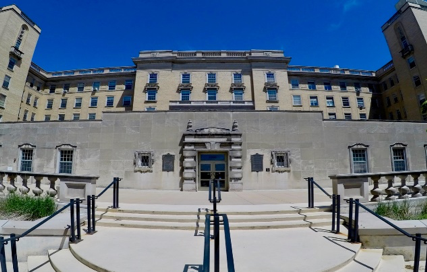
University of Wisconsin-Madison (UW-Madison) Global Health Institute
1656 Linden Drive
Madison, WI 53706

Center Co-Director: Dr. Tony Goldberg
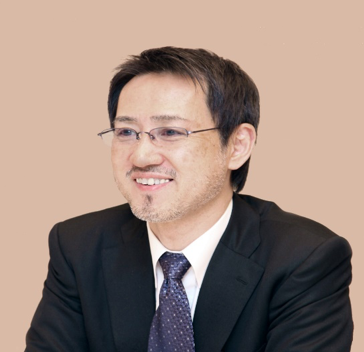
Center Co-Director: Dr. Yoshihiro Kawaoka
Member Researchers: Drs. Lyric Bartholomay, Kristen Bernard, James Conway, Thomas Freidrich, Paul Friesen, James Gern, Paul Lambert, Andrew Mehle, David O’Conner, Jorge Osorio, Ann Palmenberg
The University of Wisconsin-Madison (UW-Madison) is world renowned for its research and translational programs in virology and the global reach of these programs. The UW-Madison Global Health Institute lies at the crossroads of these endeavors and serves as an umbrella organization for broad-based activities on emerging themes in global health. Virologists at UW-Madison study agents infecting humans, animals, and plants, including highly pathogenic viruses (e.g. the ebolaviruses) and viruses with pandemic potential (e.g. influenza virus, arboviruses). Activities range from basic research to the development of vaccines and therapeutics to public health and policy. UW-Madison has particular strengths in emerging viral pathogens and zoonosis, including rapid detection and characterization of viral agents, the development of animal models (especially primates), and the development of countermeasures such as vaccines and therapeutics.

University of Miami, Miller School of Medicine
BCRI Building
1580 N.W. 10th Ave.
Seventh floor
Miami, FL 33136 USA

Center Director: Dr. Mario Stevenson
Member Researchers: Ronald Desrosiers, David Watkins, Glen Barber, Savita Pahwa
The University of Miami is in a geographic region that is disproportionately affected by HIV/AIDS and is also at the gateway to South America . As such, our research programs in virology and immunology focus on HIV/AIDS and its co-pathogens as well as emerging tropical infectious pathogens. Research on HIV/AIDS is focused on development of a vaccine against HIV-1. Researchers are developing approaches based on broadly neutralizing antibody approaches as well as CD8 T-cell-based approaches. Although antiretroviral therapy can reduce HIV in the blood to undetectable levels, virus replication resumes when treatment is interrupted for whatever reason. Therefore, several investigators are trying to understand how HIV-1 persists in the face of antiretroviral therapy since this knowledge may inform strategies for curing the infection. In addition to research on HIV/AIDS, investigators at UM are examining the viral etiology of Hepatitis C infection. The HCV field has entered an exciting phase with the development of antivirals that can cure HCV infection in as little as 6 weeks. There are also active research programs on Herpesviruses including Kaposis Sarcoma Herpesvirus and EBV. Finally, there are several investigators developing approaches to vaccinate against emerging tropical diseases including Dengue Virus infection
 University of Michigan – Division of Infectious Diseases
University of Michigan – Division of Infectious Diseases
1500 E Medical Center Dr, #3
Ann Arbor, MI 48109
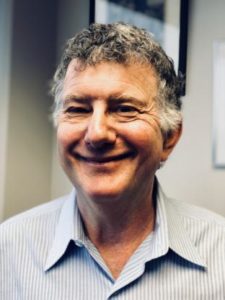
Center Director: Dr. David Markovitz
Member Researchers: Adam Lauring, Kathleen Collins, Mark H. Kaplan, Christiane Wobus, Emily Martin, Akira Ono
The Division of Infectious Diseases at the University of Michigan was founded in 1958. Since then, the division has become recognized nationally for an exemplary record of patient care, research and teaching. In addition to the regular Infectious Diseases Outpatient Service, an Immunization and Overseas Travel Consultation Service is available for consultation, general health advice, and immunizations for both domestic and international travel. The University of Michigan Health System is among the best in the world, ranked in the top 15 health systems in the country in the most recent U.S. News and World Report. The Department of Internal Medicine consists of over 600 full time academic faculty, and is ranked fourth in the country in NIH research dollars.
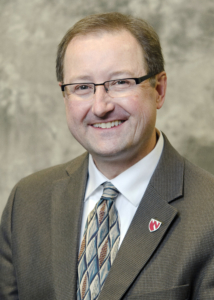
 Center Co-Directors: Dr. Christopher Kratochvil and Dr. Howard Gendelman
Center Co-Directors: Dr. Christopher Kratochvil and Dr. Howard Gendelman
Member Researcher: Dr. Kenneth Wayles, Dr. John Lowe, Dr. James Lawler, Dr. Siddappa Byrarreddy, Dr. Benson Edagwa, Dr. Adam Szlachetka, Dr. Charles Wood
UNMC has a long history of significant viral research activities, leading a unique array of initiatives that include innovative basic and translational research, a special pathogens clinical trials network, and multiple global public health initiatives. Leading world class molecular, biochemical, pharmacologic and immunological research is operative and well established. Nano formulation antiviral therapies are developed in our GLP and GMP facilities using medicinal and polymer chemistry approaches for bench to bedside drug development. In addition to the conduct of such research, we promote capacity building through on-site training at UNMC, external collaborations with major U.S. and global pharmaceutical as well as clinical facilities, the capacity to produce products on site, and efforts in support of institutions located in resource-poor nations. We are committed to working to support the GVN central operations, particularly through participation in grant applications, product development, and clinical research operations.
 University of Pittsburgh Cancer Institute
University of Pittsburgh Cancer Institute
5117 Centre Avenue
Pittsburgh, PA 15213

Center Director: Dr. Patrick S. Moore
Member Researchers: Yuan Chang, Neal DeLuca, Phalguni Gupta, Shaleem Khan, Ronald Montelaro, Saumendra N Sarkar, Thomas Smithgall, John Mellors
Founded in 1985, the University of Pittsburgh Cancer Institute (UPCI) is the only National Cancer Institute (NCI)-designated Comprehensive Cancer Center in western Pennsylvania. With nearly 400 research and clinical faculty members specializing in disciplines ranging from cancer prevention and early detection to novel therapeutic discovery, survivorship, and end of life care, UPCI maintains a broad strategic vision and comprehensive approach to understanding and defeating cancer. The Cancer Virology Program (CVP) is dedicated to research on the viruses causing human cancer as well as using viruses as tools to fight cancer. The CVP includes over 30 investigators working on four major research themes: (1) Viral Oncology; (2) AIDS-related Malignancies; (3) Viral Vectors for Human Gene Therapy; and (4) New Pathogen Discovery.
 University of Rochester Medical Center
University of Rochester Medical Center
School of Medicine and Dentistry
601 Elmwood Avenue, Box 609
Rochester, NY 14642

Center Director: Dr. David Topham, PI, URMC
Member Researchers: Steven Dewhurst, Luis Martinez-Sobrido, Anne Falsey, Edward Walsh, Brian Ward, Joshua Munger, Yiping Zhu, Toru Takimoto, Mike Keefer
Over the last five years, the URMC has garnered more than $1.18 billion in biomedical research funding, common and rare illnesses, landing the University in the top 26th percentile of U.S. medical centers in Federal research funding. Coupled with one million square feet of state-of-the-art research space, and high-end support services and shared resources, we’re building upon this strong legacy of research every day. Our scientists contributed vaccine technology: HPV vaccine, protecting against cervical cancer, newborns worldwide receive a vaccine that URMC researchers created against Haemophilus influenza type B (Hib), virtually wiping out a leading cause of meningitis in preschoolers. And we conducted the first pivotal, H5N1 bird flu efficacious and safety study, and ready to administer if faced with a pandemic. The Medical Center also has a long history in HIV research, being one of the first sites in the United States to conduct HIV vaccine studies. The NIH-sponsored University of Rochester HIV/AIDS Clinical Trials Unit, or The Rochester Victory Alliance, participated in more than 275 HIV treatment and vaccine trials, enrolling upwards of 3,500 volunteers since 1987.
 UTMB – Galveston National Laboratory
UTMB – Galveston National Laboratory
301 University Blvd.
Galveston, Texas 77550
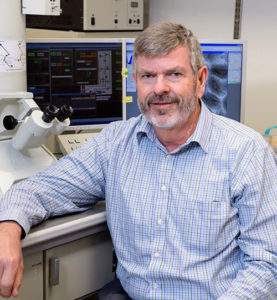
Center Director: Dr. Scott Weaver
Member Researchers: Tom Ksiazek, Alexander Bukreyev, Tom Geisbert, D. Beasley, B. Paessler, J. Nichols, Dennis Bente, Alan Barrett, Tetsuro Ikegami, Chien-Te “Kent” Tseng, Tian Wang, Chad Mire
The University of Texas Medical Branch (UTMB) is known worldwide for its academic excellence in virology research. The scientists and academic staff at the university include some of the world’s foremost infectious disease experts, and research at the university results in groundbreaking biomedical discoveries and the development of vaccines, therapeutics and diagnostic tools. The Galveston National Laboratory (GNL), the flagship high containment facility of the UTMB Institute of Human Infections and Immunity, resides on the UTMB campus and houses research on Ebola, chikungunya, MERS coronavirus, dengue, West Nile, and other emerging viruses. The Institute also includes the Center for Biodefense & Emerging Infectious Diseases, the Sealy Center for Vaccine Development, the Center for Tropical Diseases, and the McLaughlin Endowment for Infection and Immunity.
Center for Life Science Building
3 Blackfan Circle
Boston, MA 02115

Center Director: Dr. Donald Ingber
Member Researchers: Joanna Aizenberg, George Church, James Collins, Neel Joshi, Jennifer Lewis, Samir Mitragotri, David Mooney, Radhika Nagpal, Kevin Kit Parker, William Shih, Pamela Silver, Conor Walsh, David Walt, David Weitz, George Whitesides, Robert Woos, Peng Yin
The Wyss Institute for Biologically Inspired Engineering at Harvard University creates transformative technological breakthroughs by engaging in high-risk research, crossing disciplinary and institutional barriers, to develop new engineering solutions for healthcare, energy, architecture, robotics, and manufacturing. Our technologies are translated into commercial products and therapies through collaborations with clinical investigators, corporate alliances, and formation of new startups
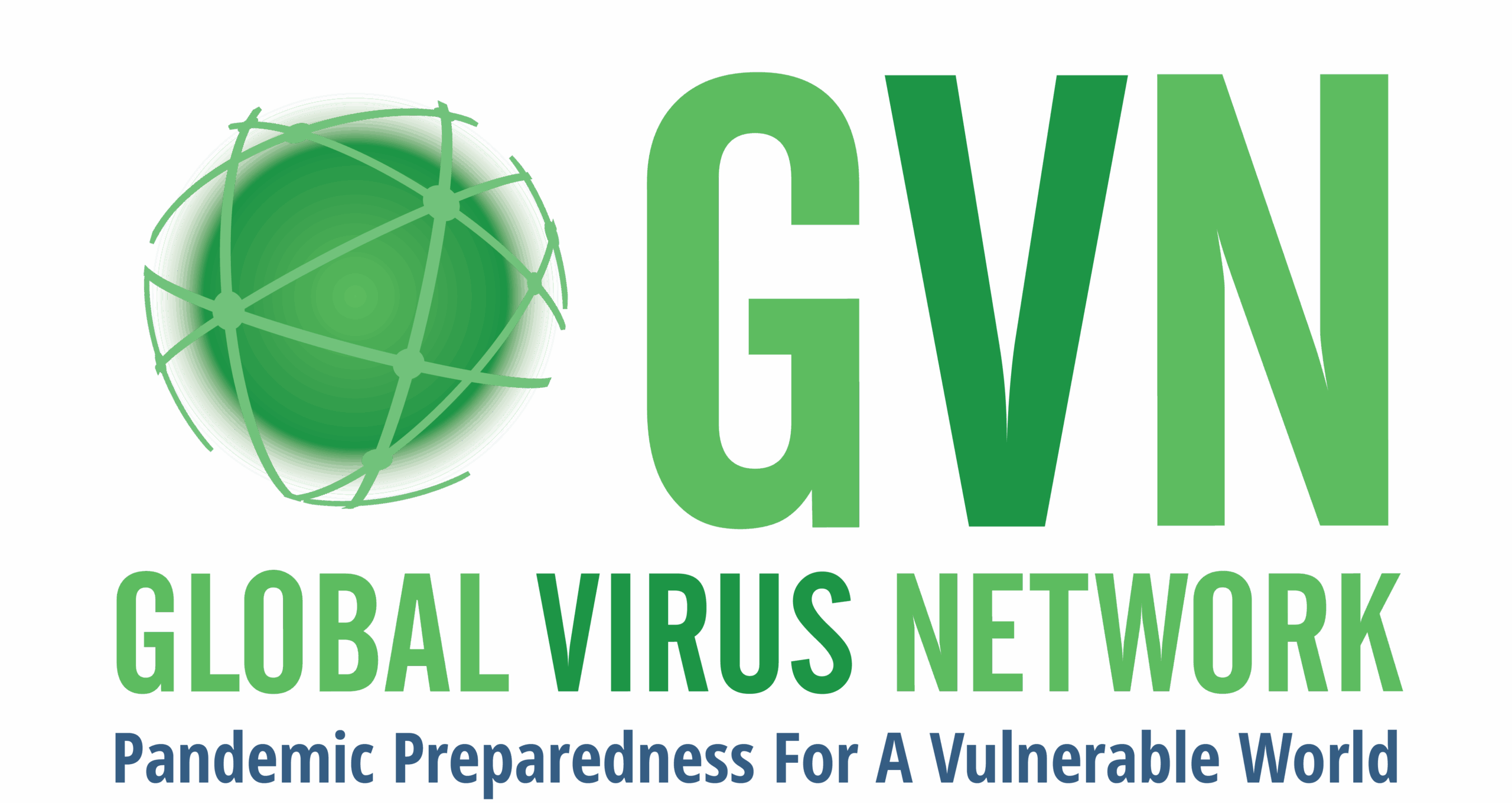
 United States
United States